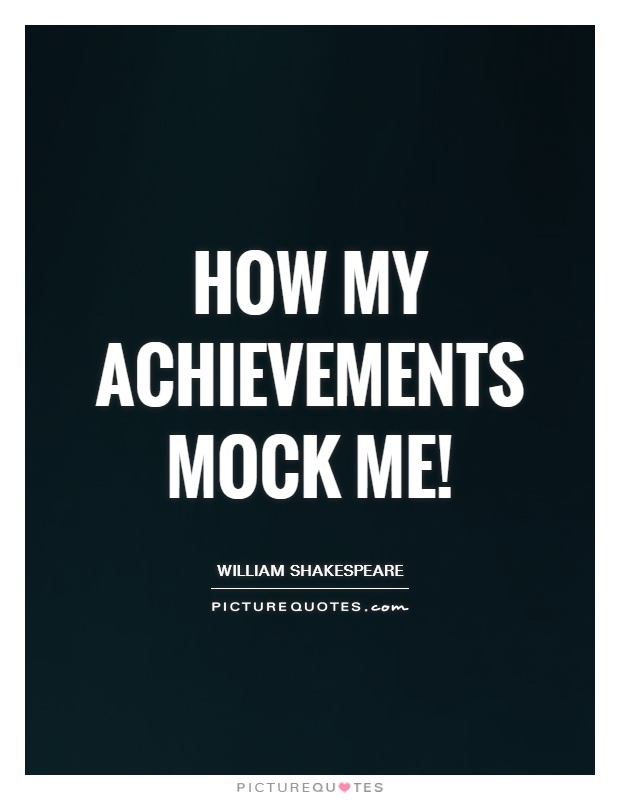How my achievements mock me!

How my achievements mock me!
In the world of William Shakespeare's plays, the theme of ambition and achievement is a common thread that runs through many of his works. Characters such as Macbeth, Othello, and King Lear all strive for greatness and success, only to have their achievements ultimately mock them in the end.One of the most famous examples of this theme can be found in Shakespeare's tragedy, Macbeth. The titular character is a brave and noble warrior who is driven by his ambition to become king. Through a series of manipulations and murders, Macbeth achieves his goal, only to be haunted by guilt and paranoia. His achievements mock him as he descends into madness and ultimately meets a tragic end.
Similarly, in Othello, the protagonist's achievements as a respected military leader are overshadowed by his jealousy and insecurity. Othello's achievements in battle are ultimately meaningless as he is consumed by his doubts and suspicions, leading to his downfall and the tragic deaths of those around him.
In King Lear, the titular character's achievements as a powerful king are rendered meaningless as he is betrayed by his own daughters and descends into madness. Despite his accomplishments, Lear is left with nothing but regret and despair, as his achievements mock him in his old age.
Shakespeare's exploration of the theme of how achievements can mock us serves as a cautionary tale about the dangers of unchecked ambition and the consequences of pursuing success at any cost. The characters in his plays serve as reminders that true greatness is not measured by power or wealth, but by the integrity of one's character and the relationships we cultivate with others.












 Friendship Quotes
Friendship Quotes Love Quotes
Love Quotes Life Quotes
Life Quotes Funny Quotes
Funny Quotes Motivational Quotes
Motivational Quotes Inspirational Quotes
Inspirational Quotes